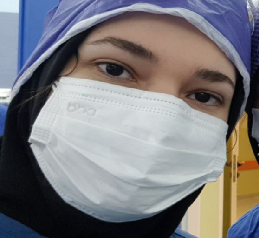Scholars World Congress on
Otology, Rhinology & Laryngology
THEME: "Explore and Emphasize the Innovations of Otorhinolaryngology- ENT"
 24-25 Jun 2024
24-25 Jun 2024  Rome, Italy
Rome, Italy THEME: "Explore and Emphasize the Innovations of Otorhinolaryngology- ENT"
 24-25 Jun 2024
24-25 Jun 2024  Rome, Italy
Rome, Italy 
Department of Oromaxillofacial surgery, Iran
Title: Application of Artificial Intelligence in Different Fields of Oromaxillofacial Surgery
Time:
Aim: The mechanization of today’s world and the recent developments about robots and its use in industry and medicine, as well as the replacement by these tools instead of human labor with the ability to make them intelligent, have made artificial intelligence (AI) and robots hot topics these days. Artificial intelligence isthe ability of intelligent machines to predict unknown variables by using algorithms and internal statistical patterns and information structures. In the structure of AI, which are divided into two general categories, machine learning and deep learning, human neural patterns are in the form of neural networks. The working areas of AI in maxillofacial and plastic surgery are wide and in the fields of rhinoplasty, orthognathic surgery, cleft lip and palate, augmentation in implants, and diagnosis and determination of survival rate in cancer patients. In this review article the different functions of AI in the fields of maxillofacial surgery and the extent of its effectiveness in helping to improve the acceleration of work are discussed. Methods & Materials: This study examines articles from 2000–2023. Google Scholar and PubMed databases were used for searching and keywords such as artificial intelligence-machine learning, deep learning were investigated. The inclusion criteria for this study were all the articles that were written and reviewed in the years in question, in English, and the field of research was maxillofacial or plastic surgery.
Results: Rhinoplasty: The application of artificial intelligence (AI) in the field of examining bone shape, examining the beauty of patients based on the evaluation of pre-treatment photographs and predicting the results of the operation based on radiographic interpretation. Orthognathic surgery: AI can be used in the field of lateral cephalometric tracing, scanning of patients’ occlusion, examination of periodontal diseases and dental problems, as well as making oral appliances and predicting the operation using machine learning (ML).